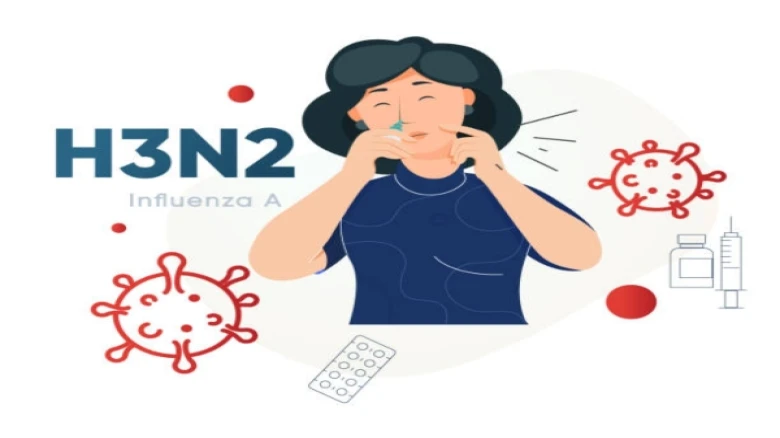Amid 'rising' H3N2 cases, patients with pneumonia-like symptoms have been admitted to hospitals...
Digital Desk: Doctors have advised individuals to be cautious and use masks when leaving the house in the aftermath of the rising H3N2 influenza A infection. They also requested that the government increase testing for respiratory and influenza-like disorders (ILI).
Precautions to take:
1| Wear masks at the very least in high-risk areas, such as public transportation, hospitals, airports, and trains.
2| Think twice about going to crowded places without a mask.
3| To reduce the risk of infection, wash your hands with soap or sanitiser before using public transportation or eating.
4|Flu vaccinations must be administered yearly to help build immunity.
5| Antibiotics should not be used to treat the flu because they only combat bacteria and not viruses.
6|Symptoms noted by doctors in flu patients in India
Symptoms of H3N2, that you must know :
- It's similar to seasonal flu viruses, These include fever, cough, and runny nose.
- Other possible symptoms include body aches, nausea, vomiting, and diarrhoea.
- Patients may also experience severe muscle pain at times.
- Patients with pneumonia-like symptoms have also been hospitalised.
- Some elderly patients have witnessed a loss of consciousness.
- Patients are increasingly coming with "post-viral syndrome like severe cough" and need "oral medication and nebulizers".
- An even more symptom observed is ear fullness, which many patients complained about on day five or six of their illness. They have the sensation that something is stuck inside their ears, which are plugged in. Young adults are more likely to experience this symptom.
H3N2 influenza is a subtype of the virus. It is also known as the common flu virus, and it is very frequent in youngsters and the elderly. In most situations, the sickness is mild and self-limiting.

Leave A Comment